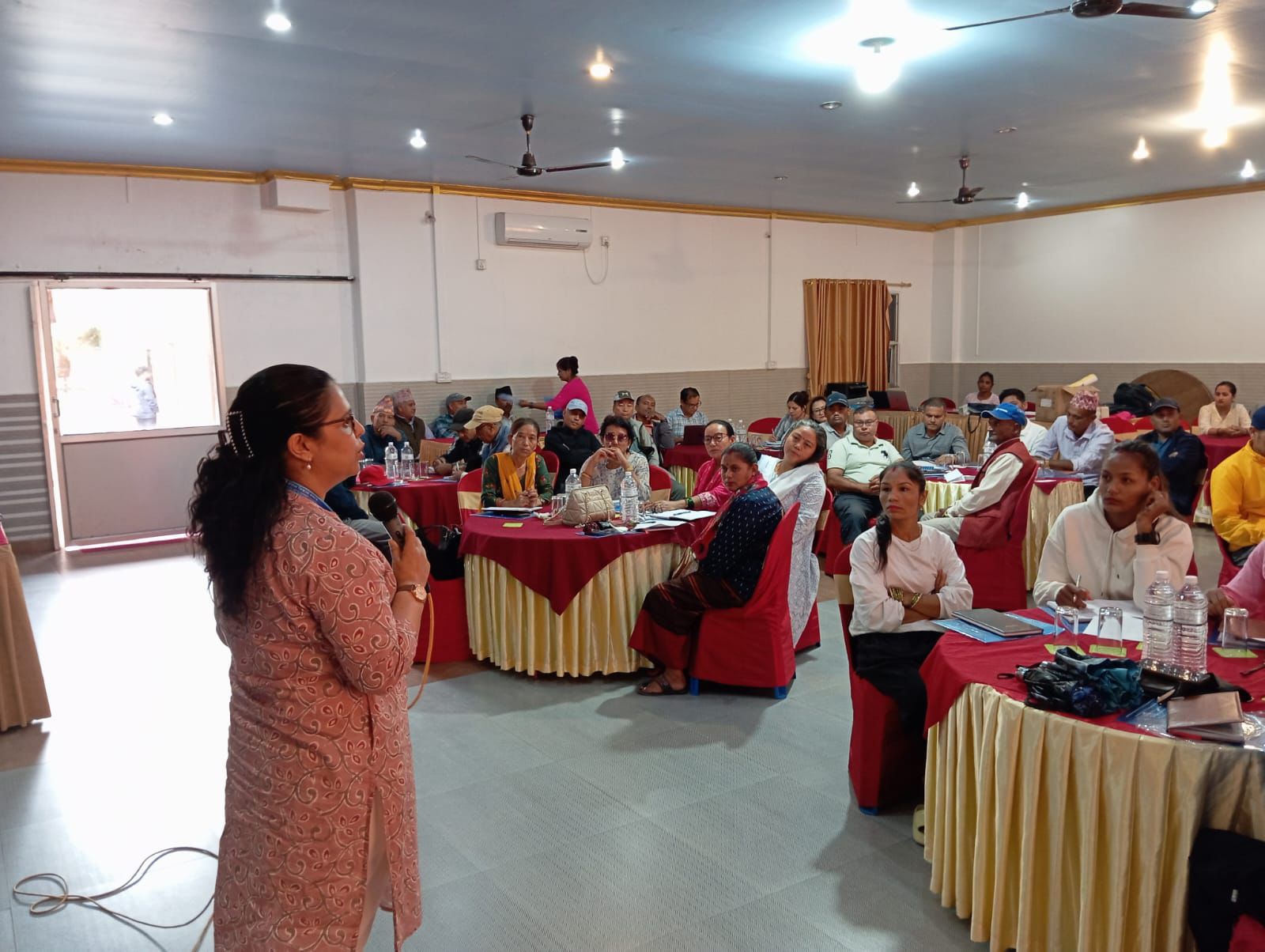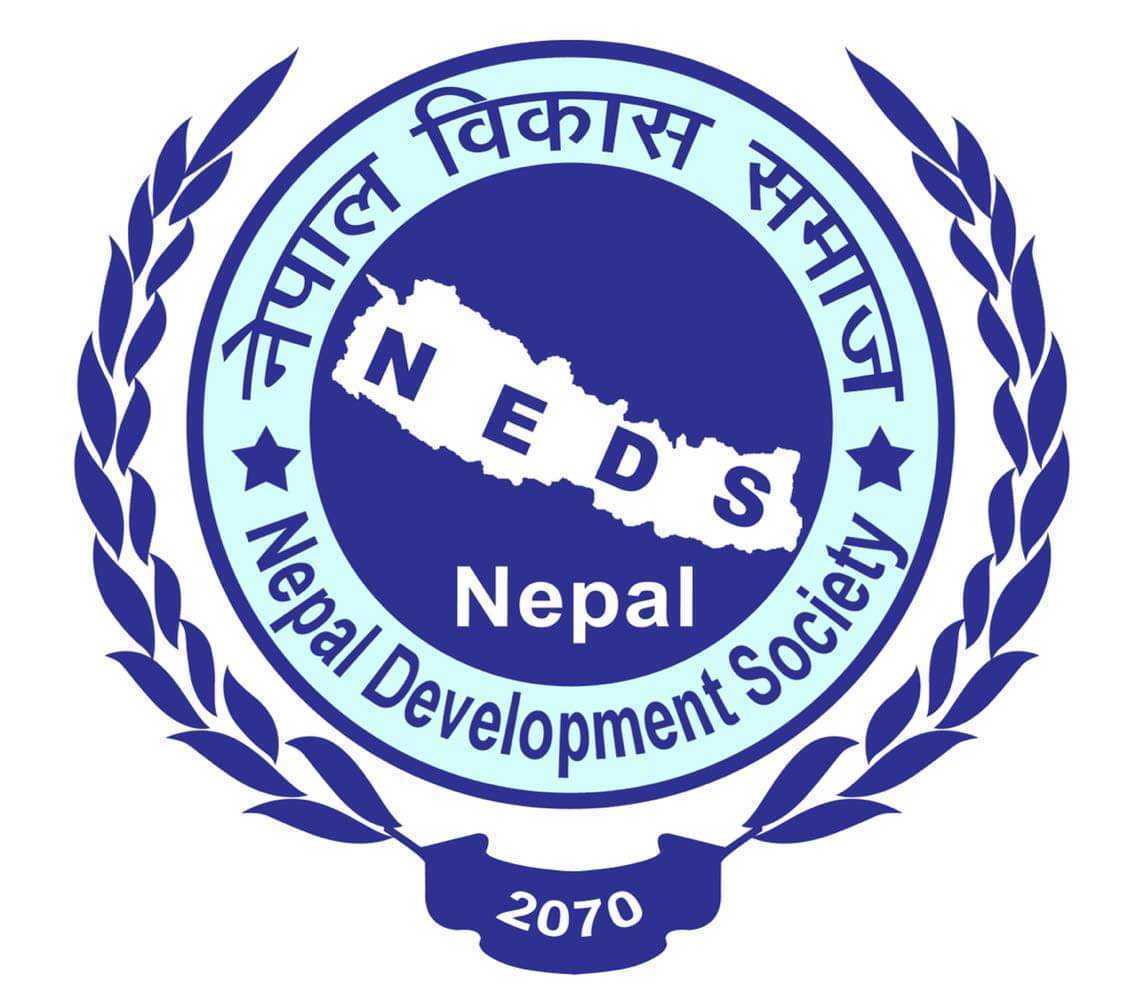The workshop session was conducted by engaging the returnee labor migrant/survivors invited through the networks of PNCC and Pourakhi Nepal at Kaski district, Nepal. The main aim of the workshop was to understand the challenges/problem faced by returnee labor migrants and identify the potential intervention solution that could possibly inform the design of intervention program for trafficked Nepali labor migrant.
The concept note for the conduction of provincial workshop meeting was developed and shared with La Isla Network. The key participants who were the returnee labor migrants appreciated the program and commented on the need for such program on regular basis. 

Each of the sessions were followed by the presentation from each of the groups. The presentation session was followed by the discussion session. The attendees shared their experience relating to migration with the team of NeDS.
The first session delved into the problem identification through perspective of returnee labor migrant. Participants from each of the group were invited to present their work in front of the larger audience.
Problems identified under each of the key themes are:
1. Recruitment Practices:
• Dependency on the manpower agent for the foreign job (unfortunately, state does not recognize the agent).
• Lack of access to information in rural areas.
• Confiscation of passport and other required documentation by the agent and manpower company for the extended period.
• Unreliable information from the side of agent and manpower company.
• Deposit the payment prior to visa issuance.
• Lack of clear information on contract, from the side of manpower and agent.
• Discrepancy between salary mentioned in contract versus the actual payment.
• Payment is not in alignment with the nature of work.
• Pre-departure health screening being ineffective in context of Nepal.
• Free visa free ticket policy, lacking in implementation part.
• Exorbitant amount of fee for foreign employment.
• Migrate to third world via the route of India.
• Lack of access to justice for the victim of fraud.
• Lack of monitoring system from the government side.
• Centralization of foreign employment office only in capital city.
• Pre-departure orientation/training being ineffective.
2. Support system and Justice:
• Lack of adequate legal counselling
• Absence of orientation facility from the government side at local level.
• Organizations providing training do not have access at the local level.
• Lack of transparency and accountability among the recruitment agencies having approval from government (two different contract papers).
• Concerned stakeholders (especially district administrative office) being indifferent to the complaints.
• Approved health screening organization presenting the falsified health report.
• Intermediary/Broker agent manipulating the labor permit.
• Lack of assistance from diplomatic mission.
• Lack of coordination among the concerned stakeholders.
• Labor migrants facing problems at airports.
3. Occupational Health and Safety:
• No knowledge of job title and company name.
• Lack of orientation on work safety and skills.
• Lack of leave entitlement and safety gears.
• Lack of awareness on standard operating procedures, rules and regulations.
• Lack of standards on health checkups and insurance.
• Lack of awareness on available health services.
• Language barriers.
4. Re-integration:
• Social challenges/problem particularly for the single female.
• Lack of confidence
• Having to rely on parental home for support, /forced to lead a neglected life.
• Social discrimination and stigma
• Lack of respect from society
• Inhumane behavior
• Financial challenges such as unemployment, lack of capital, lack of access to information, dependency on daily wages, minimal wages, discrimination in wage between male and female.
• Lack of gender friendly re-integration directives.
• Discrimination against the female domestic worker.
5. Skills and Employment:
• Language barrier
• Lack of information access to health and safety.
• Pre-departure orientation
• Skill-based training related to employment.
• Work and service benefit as per the agreement/contract.
• Information related to language, culture and lifestyle.
• Lack of regular coordination between diplomatic mission and relevant stakeholders.
• Government to government agreement.
• Lack of financial literacy to the migrant worker.
• Lack of orientation to the family of migrant worker.
Similar to the first session, potential intervention solution (in session second) under each of the key themes were identified, which are as follows:
1. Recruitment practices:
Coordination with employment service center/migration resource center to establish and operate assistance desk.
Evidence based advocacy for the implementation of Free visa free ticket policy.
Coordination with organization providing predeparture training to improve its effectiveness.
Coordination with placement/manpower agencies to increase their capacity for the ethical recruitment practices.
2. Support system and Justice:
Establishment of help desk at local level.
Provision of foreign employment related training/orientation through coordination with local level government.
Interaction meeting between the migrant worker and the approved placement/manpower agencies.
Developing a framework for coordination between government and organizations working in the field of foreign employment.
Provision to bring brokers/agent within a legal framework at free of cost.
Conduct research and studies to identify barriers to legal aid and access to justice.
3. Occupational Health and Safety:
Provision of counselling and treatment for the migrant population suffering from mental health issues.
Information on the job title and salary as per the work.
Provision of heath checkup and skill-based training to the returnee labor migrant.
Mandatory provision for manpower to improve the quality of health checkup.
4. Reintegration:
Community based awareness program to discourage social discrimination and stigma.
Create a database of the returnee labor migrants and develop the program based on their skills, capacities and experience.
Develop income generation-based program activity for the migrant worker to feel the real change.
Financial literacy program for migrant workers and their families.
Provision of interest free loans or financial assistance to those deprived of employment opportunities.
Develop gender friendly policy and legal provision for re-integration program
Provide support based on the policy of positive discrimination to workers in special circumstances based on gender identity and recognition.
5. Skills and Employment:
Mandatory provision for each municipality to develop their own migration profile.
Bring illegal recruitment & manpower agencies and their agents within the legal framework of local government and district administration office.
Establish and mobilize the network of returnee migrant workers to control the misconduct of foreign employment.
Community based awareness campaign through coordination with local government.
Labor approval only if the migrant has taken minimum of one month
skill-based training relevant for the job.
Orientation to the ward chairman and ward members on the issues of labor migration.
Thematic experts/resource person working in different areas of migration were allocated for each group to facilitate the brainstorming session. Followed by the presentation session, the floor was opened for discussion among the participants. Resource persons were also invited to share their point of view.
